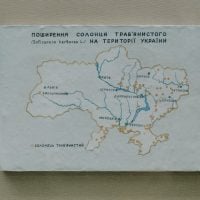Deadline: 4-Oct-22
If you want to connect with peers and professionals or take part in a work placement throughout Europe, Erasmus+ is for you!
The European Union programme Erasmus+ funds Vocational Education and Training (VET) projects across Europe. This is to provide learning opportunities to individuals, and to support internationalisation and institutional development of VET providers and VET organisations.
There are two main types of Erasmus+ VET Mobility projects: ‘Short-term projects for mobility of learners and staff’ and ‘Accredited projects for mobility of learners and staff’. Organisations that take part in Erasmus+ should actively promote the programme priorities: inclusion and diversity, environmental sustainability; digital education and active participation. Organisations can do this by:
- making these priorities a focus of their projects
- raising awareness among their participants
- sharing best practices.
A VET mobility project is an opportunity to increase the quality of initial and continuing vocational education and training (IVET and CVET) in Europe and strengthen the European dimension of teaching and learning.
Who Can Take Part in a Mobility Project?
VET providers and other VET organisations in Ireland can apply to Léargas for funding. In Ireland, a VET school, institute or centre means “an organisation that directly delivers further education programmes–with a vocational or apprenticeship element–at NFQ Levels 4, 5 or 6. These programmes typically include periods of vocational work-based learning. The programmes delivered must be full, rather than minor or special purpose award programmes.”
- For Staff Mobility Projects
- Participants can include teachers, trainers, and all other non-teaching experts and staff working in initial vocational education and training and in continuing vocational education and training. Certain non-teaching staff can also take part. This includes staff working in initial and continuing VET, either in VET providers as management staff, international mobility officers, and so on, or in other organisations active in vocational education and training (such as trainers in local partner companies, counsellors, policy coordinators in charge of vocational education and training, and so on.).
- For Learner Mobility Projects
- Eligible participants include learners and apprentices in initial vocational education and training and in continuing vocational education and training. Participants must be enrolled in an eligible programme. Recent graduates (including former apprentices) of eligible programmes can take part up to 12 months after their graduation.
- Other supported activities
- Organisations can apply to host ‘teachers in training’ who want to spend a traineeship period abroad.
- Organisations can also invite trainers, teachers, policy experts or other qualified professionals from abroad who can help improve the teaching, training and learning in the applicant organisation.
- Organisations can apply for a ‘preparatory visit’ to their hosting partner before the mobility takes place. This visit must be linked to the learner or staff mobility. Its purpose is to improve the inclusiveness, scope and quality of the mobility activities. Preparatory visits are not possible for staff courses or training.
Eligible Countries
EU Member States take part in the Erasmus+ Programme. In addition, in accordance with article 16 of the Erasmus+ Regulation, the following third countries are associated to the programme:
- members of the European Free Trade Association (EFTA) which are members of the European Economic Area (EEA): Norway, Iceland, Liechtenstein.
- acceding countries, candidate countries and potential candidates: Republic of North Macedonia, Republic of Turkey and Republic of Serbia.
Eligibility Criteria
- Individuals constitute the main target population of the Programme. However, the Programme reaches these individuals mainly through organisations, institutions, bodies or groups that organise such activities. The conditions of access to the Programme therefore relate to these two actors: the “participants” (individuals participating in the Programme) and the “participating organisations” (including informal groups and self-employed persons). For both participants and participating organisations, the conditions for participation depend on the country in which they are based.
- As a general rule, participants in Erasmus+ projects must be established in an EU Member State or third country associated to the Programme.
- In general terms, the main target groups are:
- For projects relevant for the field of higher education, the main targets are: higher education students (short cycle, first, second or third cycle), higher education teachers and professors, staff of higher education institutions, trainers and professionals in enterprises;
- For projects relevant for the field of vocational education and training, the main targets are: apprentices and students in vocational education and training, professionals and trainers in vocational education and training, staff of initial vocational education and training organisations, trainers and professionals in enterprises;
- For projects relevant for the field of school education, the main targets are: school leaders, school teachers and school staff, pupils in pre-primary, primary and secondary education;
- For projects relevant for the field of adult education, the main targets are: members of non-vocational adult education organisations, trainers, staff and learners in non-vocational adult education;
- For projects relevant for the youth field the main targets are: young people from 13 to 3015, youth workers, staff and members of organisations active in the youth field;
- For projects relevant to the field of sport, the main targets are: professionals and volunteers in the field of sport, athletes and coaches.
For more information, visit https://www.leargas.ie/erasmus-plus/mobility-projects/vet/









































